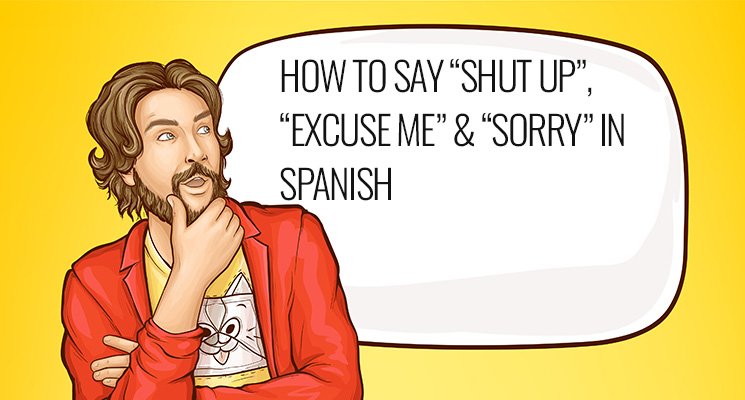The United States does not have an official language and uses English and American English for regulations and officials. Spanish is the Second most common language in the United States with over 41 million speakers. Among the most spoken languages in 2023, Spanish ranks 4rth.
The United States is a non-Hispanic country and learning Spanish in the United States is a valuable skill due to the country’s growing Hispanic population and its importance as a global language.

I am going to share some valuable resources regarding how to say some Polite and Assertive Phrases in Spanish. From “Shut Up” to “Sorry” and more, master yourself with Spanish expressions. However, if you want to learn complete Spanish, you may join online language courses.
How To Say Shut Up in Spanish
In Spanish, “shut up” can be translated as “cállate” or “callate“. If you want to say it in a more polite or formal way, you can use “cállese” when addressing one person, or “cállense” when addressing multiple people. Here are the variations:

- Informal, addressing one person: “Cállate” or “Callate” (Pronounced: KAH-yah-teh
- Formal, addressing one person: “Cállese” (Pronounced: KAH-yeh-seh
- Informal, addressing multiple people: “Cállense” (Pronounced: KAH-yehn-seh
How to Say Excuse me in Spanish
To say “excuse me” in Spanish, you can use the phrase “perdón” or “disculpe” depending on the level of formality:

- Perdón (informal): “perdón” (Pronounced: pehr-DON
- Disculpe (formal): “disculpe” (Pronounced: dee-SKOOL-peh
How to Say Sorry in Spanish
To say “sorry” in Spanish, you can use the word “lo siento.”

- To apologize in Spanish: Lo Siento (Pronounced: loh SYEN-toh
There are around 10+ Spanish Phrases that can be used for Apologies.
- How Stupid of me: Fue Una Estupidez or Fui Descuidado
- I am so sorry for: Lo Siento Mucho Por
- I beg you pardon: Por Favor, Disculpeme
- I demand an apology: Exijo Una Disculpa
- I don’t want to impose: No Quiero Entrometerme
- I don’t want to interrupt: No quiero interrumpir(te)
- I don’t want to keep you waiting: No Quisiera hacerle esperar
- I don’t want to take up your time: No Quisiera quitarle tiempo
- I am a stupid mistake: Cometi un estupido error
- I must apologize for: Le debo una Disculpa por
- I was only trying to: Solo intentaba
- I don’t want to bother you: No quiero molestarte
- I am really sorry: Lo Siento Mucho
Language learning is a journey, and progress may vary from person to person. The more you immerse yourself in the language and culture, the more confident and proficient you will become in speaking Spanish.


